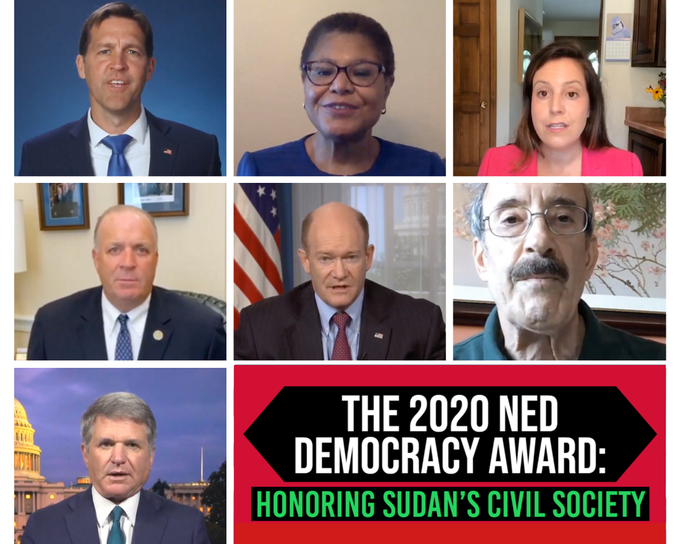In response to the many recent incidents of violence, civil society organisations and activists in Sudan have started a campaign under the name “Protect the right to live”, Dabanga reports. Dozens of civil society organisations and activist teams, including a large number of Resistance Committees, the Association of Relatives of the Victims of the December Revolution, and the Darfur Bar Association, agreed to set up the campaign, and are collecting signatures online.
The DBA was one of Sudan’s leading civil society groups recognized by the National Endowment for Democracy (NED – above) for their role in facilitating Sudan’s albeit fragile democratic transition.
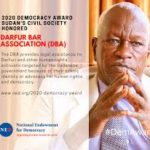 Prime Minister Abdalla Hamdok is a respected technocrat, and a Sovereign Council includes civilians and military officials, The Wall Street Journal reports. Problematic figures have retained some power, but Mr. Hamdok has broken an infamous security service and repealed restrictive Islamic laws. The press and broader civil society have more space to operate, it adds:
Prime Minister Abdalla Hamdok is a respected technocrat, and a Sovereign Council includes civilians and military officials, The Wall Street Journal reports. Problematic figures have retained some power, but Mr. Hamdok has broken an infamous security service and repealed restrictive Islamic laws. The press and broader civil society have more space to operate, it adds:
Sudan presents a rare chance to turn an authoritarian rogue state and former terror sanctuary into a democratic partner. As Chinese influence grows in Africa and the Middle East, the U.S. will need more such friends. Making a small effort today could improve lives and promote stability in North Africa after years of strife.
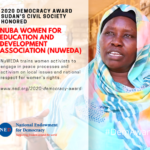 Fragility and armed conflict in states like Sudan are inherently political, and so solutions must be structured accordingly, argue Patrick W. Quirk, Nonresident Fellow at Brookings’ Center for 21st Century Security and Intelligence and Richmond Blake, Director of Policy and Advocacy at Mercy Corps. Pressuring elites to forsake violence or helping address structural causes of fragility are necessary but not sufficient. Communities must be empowered to devise conflict mitigation measures that address local risks.
Fragility and armed conflict in states like Sudan are inherently political, and so solutions must be structured accordingly, argue Patrick W. Quirk, Nonresident Fellow at Brookings’ Center for 21st Century Security and Intelligence and Richmond Blake, Director of Policy and Advocacy at Mercy Corps. Pressuring elites to forsake violence or helping address structural causes of fragility are necessary but not sufficient. Communities must be empowered to devise conflict mitigation measures that address local risks.
Supporting formal political institutions is not enough to meet these needs. A robust civil society is essential, they observe:
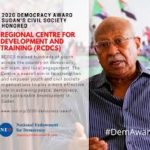 From Sudan to Myanmar, civil society actors are on the frontlines of addressing fragility. Across East Africa, civil society groups are working to ensure that people in communities at risk for violence and extremist recruitment have accurate information and digital tools to combat disinformation and counter harmful narratives. By being able to fact-check and defuse rumors in real time, communities are better able to manage tensions. In Bangladesh, civil society has been a critical link between marginalized communities and government during times of crisis. In Iraq, civil society organizations frustrated with the government’s COVID-19 response carried out public perception surveys to help the government better understand and address local challenges.
From Sudan to Myanmar, civil society actors are on the frontlines of addressing fragility. Across East Africa, civil society groups are working to ensure that people in communities at risk for violence and extremist recruitment have accurate information and digital tools to combat disinformation and counter harmful narratives. By being able to fact-check and defuse rumors in real time, communities are better able to manage tensions. In Bangladesh, civil society has been a critical link between marginalized communities and government during times of crisis. In Iraq, civil society organizations frustrated with the government’s COVID-19 response carried out public perception surveys to help the government better understand and address local challenges.
Guided by the global fragility strategy, the U.S. should develop and implement country-specific plans to prevent or stabilize violent conflict, and do three things to get this and broader strategy implementation right.
-
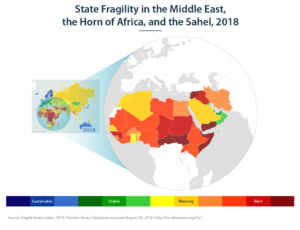
Credit: USIP
Meaningfully consult civil society when formulating inclusive country plans. If country fragility strategies are to be realistic and sustainable, the people whose lives are most affected cannot be an afterthought. The 2019 Global Fragility Act (GFA) requires civil society consultation in the development of country plans. Diplomats and partner governments should honor the intent of the law and commit to regular, public, inclusive stakeholder consultations, include representatives from civil society in drafting committees (and be transparent about recruitment and selection criteria), translate drafts and plans into multiple local languages, document and publish recommendations received from civil society, and provide clarity on why certain recommendations are accepted or not.
- Build in civil society oversight. Per the law, every country plan should require ongoing civil society engagement and oversight. In practice, this could take the form of national civil society advisory councils with diverse representation, requiring quarterly public meetings between government officials with local groups on the country plan progress, or opening government fragility task forces to include civil society representatives. These mechanisms cannot be ceremonial and must provide real opportunities for citizens to influence strategy implementation.
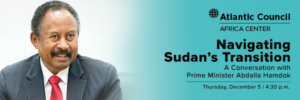 Leverage diplomatic influence to open the door for civil society. The global fragility strategy cannot succeed as a standalone initiative and must be underpinned by strong U.S. diplomatic commitment. In practice, this means ensuring collaboration and alignment of policy and programs across U.S. government foreign affairs agencies as well as ensuring coordination on this issue with like-minded Western nations. It also means prioritizing rights and inclusion in trade and security negotiations with host countries and supporting national policy reforms that address grievances and increase transparency. The U.S. should also work with governments on their legal frameworks to ensure protections for transparency activists and human rights defenders, and ensure that civil society groups can safely speak out or receive U.S. funding without fear of arrest or retaliation.
Leverage diplomatic influence to open the door for civil society. The global fragility strategy cannot succeed as a standalone initiative and must be underpinned by strong U.S. diplomatic commitment. In practice, this means ensuring collaboration and alignment of policy and programs across U.S. government foreign affairs agencies as well as ensuring coordination on this issue with like-minded Western nations. It also means prioritizing rights and inclusion in trade and security negotiations with host countries and supporting national policy reforms that address grievances and increase transparency. The U.S. should also work with governments on their legal frameworks to ensure protections for transparency activists and human rights defenders, and ensure that civil society groups can safely speak out or receive U.S. funding without fear of arrest or retaliation.
